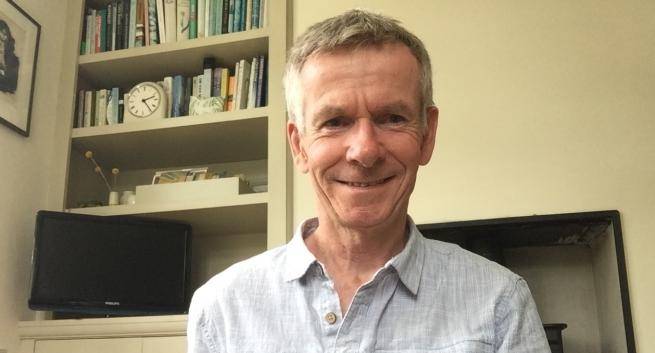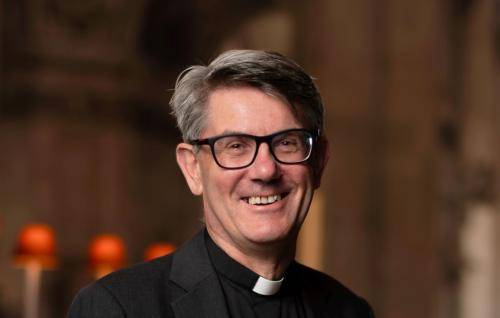Ripening: reflections for a changing season
Ripening: reflections for a changing season
Christopher Chapman reflects on signs of God in the changing season.
1. Ripening
Look around you and see how the fields are ripe for harvesting [John 4.35]
There comes a moment when you see your first blackberry – along a railway line or hedgerow. You know by its colour and its fullness that it is ready to eat.
Passing by that way earlier in the year you might have noticed the tangle of bare, thorny stems, and later the pale pink flowers and first-formed berries, still red and unyielding. Now – through the warmth of the sun, the soft rain and the rich earth – the fruit is ripe.
I notice something of the same within my own experience. Choices that shape my path begin with the stirrings of something new and unknown: a sense of unease or restlessness, or the energy springing up in me with the glimmer of a fresh direction.
But what is going on? Can I trust it? Where will this lead me? In our fast-functioning culture we expect instant answers. ‘So what’s going on? What are you going to do about it?’, people ask. It’s hard to say ‘I don’t know’.
Yet, ripening takes its own time; it invites us to the grace of waiting. Attentiveness is needed too; there is movement here, even if it is not at our pace, and it requires our cooperation if we are to begin to understand what it is about.
God is in this waiting and working; for what is forming here is not only clarity about direction but also our own ripening. Do I really know who I am and what I am to do with my life? I know something. The berries are forming where once were bare stems or easily missed flowers. And I am still invited to be alive to what wants to be in me through the creativity of God.
And if today we feel incomplete or confused about what is going on within us, we can yet wait, watch and trust that soon the time will be ripe.
2. Generosity
You are always with me, and all that is mine is yours. Luke 15.31
September is a season of abundance. Blackbirds feast on hawthorn berries, and watchful squirrels strip the hazelnuts from our garden hedge. Along forgotten walls and fences in the city, blackberries ramble and emerging flowers of ivy entice the bees. The single seeds of sweetcorn I sowed in April now produce cobs with seeds beyond counting. Nothing is mean or measured. Creation is forever generous.
But looking back at my own life I see how generosity in humans can sometimes go wrong. Giving can have a root in fear. It might be that we look to please others because we are afraid of rejection if we fail to do so, or because it gives us the sense of identity and purpose we otherwise lack. This is not the whole story; a genuine desire to express care is there too. But when these fears are mixed in, generosity easily moves into forced giving, and the givers, over time, become exhausted and resentful. Christians, perhaps, are particularly prone. The Gospel is about giving without counting the cost, isn’t it? But the cost may become unsustainable if we don’t also learn to receive.
Contemplating September’s abundance helps me find the balance. The elder tree produces its berries with the help of soil, sun, rain and pollinators; in its turn it provides food and shelter; its falling leaves will help to replenish the earth from which it grows. There is good theology here: the life of God is one of giving and receiving. The Trinity expresses this free flow of life, one to the other and the other to the one. Nothing is forced or driven.
Listening to the Church’s prayer I sometimes feel exhausted. We easily lapse into talk of meriting or earning the good that we receive. My own sense is that God doesn’t understand this transactional ‘money talk’, for the life of God is simple giving and receiving, without constraint or measure.
So today, as I pick more sweetcorn, I will say thank you to creation’s generosity, and offer up that hazelnut the squirrel is so enjoying.
3. The moment within the movement
For everything there is a season. Ecclesiastes 3.1
September – so the Meteorological Office tells us – is the beginning of a new season. Autumn is here. It helps to have names for different movements in the created world. Some call this season ‘Fall’, a name that fits with the gradual letting go of leaf and fruit, and the slow waning of the sun’s light and heat.
Yet, walking through our local woods, year by year, there seem so many seasons within this season. The day, after rain, when the toadstools push through the earth. The day of chestnut fall, morning spider webs, dew on grass, leaf fall, first frost. There is movement always; nothing remains entirely as it was.
And – within this movement – there are moments: the moment when I sit on a bench in a clearing and listen to the wind stirring the leaves; the moment of knowing the soft earth beneath my feet and the September blue of sky above me as I walk a familiar path.
It is those moments when I glimpse something of eternity, and it is those moments that help me be alive to continual movement.
Growing up I had severe reservations about eternity - ‘eternal life’ as described to me at school. Everything would be the same all the time: we’d all be standing around praising God and supposedly feeling good about it. But what if I was bored in this heavenly heaven? And was there any place for the things I enjoyed: chip shops and football pitches?
Maybe this understanding of eternal life had something to do with a desire to pin God down. At least you know where you are with a static God. One church I used to visit had the times of church services carved into its walls by its Victorian founders: nothing was going to change – ever!
Yet, the created world is alive with movement and moment. God is ‘always’, but the always of the ever-moving river of so many seasons.
You can sit by that stream and let its movement still you. That’s what I do when I walk in the woods or sit in the clearing. And that stillness wakes us to the aliveness of God’s movement within our own being. We too are in motion: some new season of our own becoming is waking.
4. Equinox
By day the Lord commands his steadfast love, and at night his song is with me, a prayer to the God of my life. Psalm 42.8
Day and night in equal measure: it happens twice a year, once in spring and now as autumn begins. From here on until midwinter, darkness will mark our days more than light.
Many of us mourn the loss of long days and lament the sense of enclosure early sunsets bring. Yet, the equinox reminds us that in any year, and through any life, night and day are held in balance.
Life begins in the dark shelter of the womb. The fallen seeds of plant or tree wake through the work of the sun, yet thrust roots down into the dim of the soil. And God too is met in darkness and light. We grow through the daylight of having control and knowing where we are going; and we grow through the night of unknowing and mystery, for it is through this vulnerability that relationship with God deepens through the choice to trust.
We move towards the fullness of our being not only by stretching ourselves to new heights but by letting go into hidden depths. This is the heart of prayer: the room we make for God to go on creating us; the resting in the Other from which our work springs. Contemplative waiting and active responding are held in balance; we need both night and day.
I do not look forward to winter. The lowest times of my life have often coincided with the shortest of days. And yet – to my surprise – I have begun to see darkness and night as necessary friends. Do I always need to be certain? Must I always know where I am going? Do I always need to bring things about through my own hard work? Do personal gifts always have to be visible strengths? It all begins to sound exhausting. The opposites lead me most directly into a deeper security of rest in God: unknowing, incompleteness, cooperation and vulnerability all invite my trust.
So, I wish you ‘good day’, and I wish you ‘good night’.








